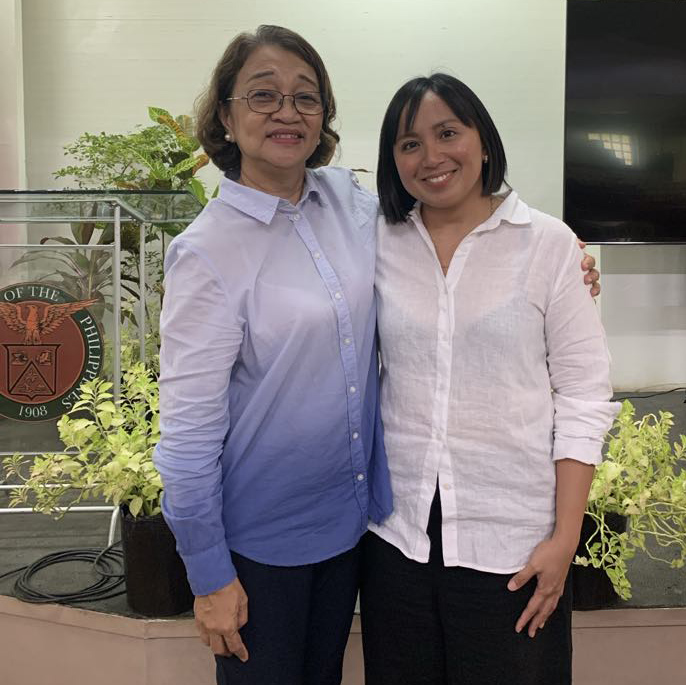Researching the global politics of sexual and reproductive health with responsibility: Dr Maria Tanyag publishes her first book
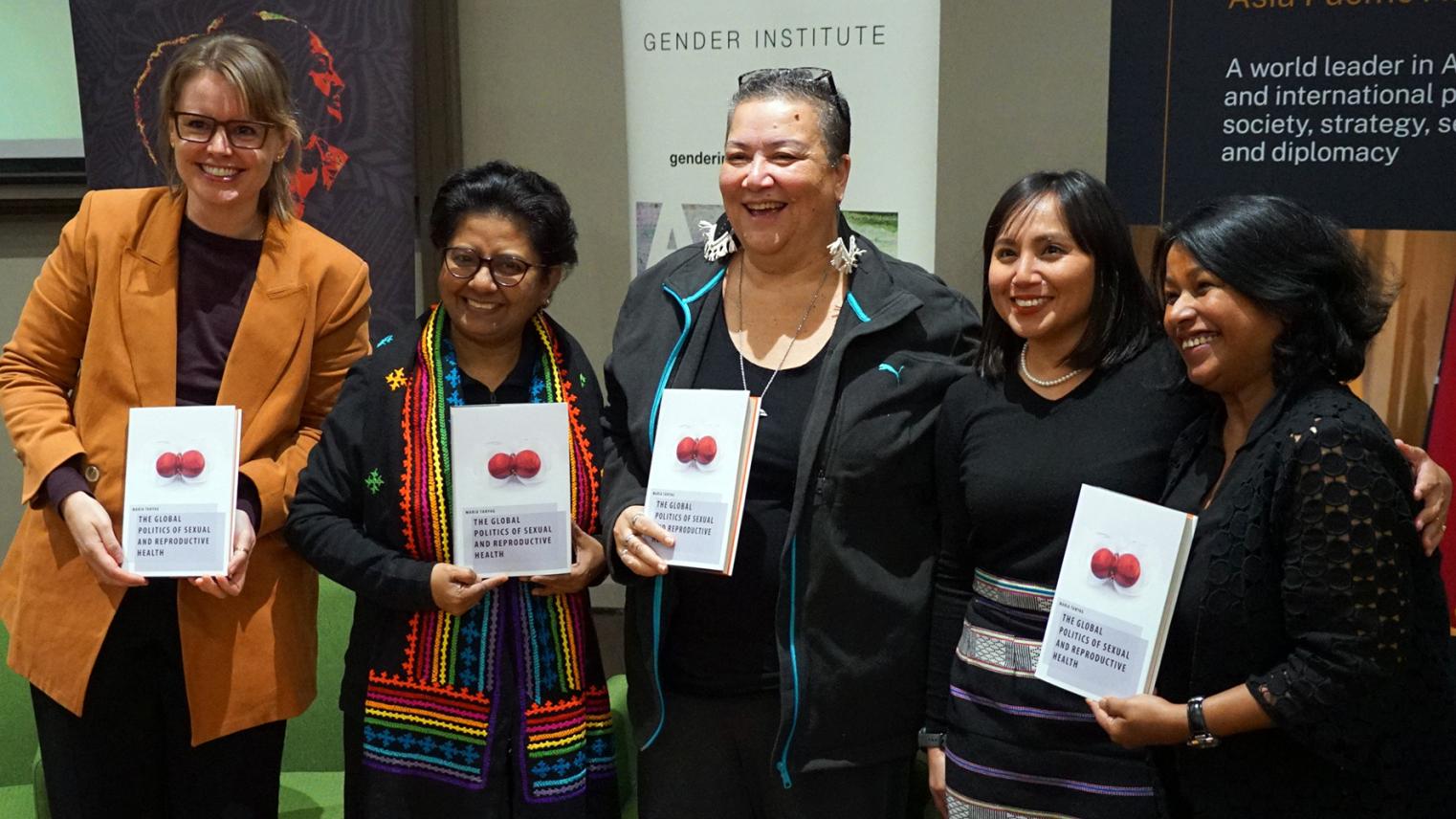
By Jiashu Fang and Olivia Wenholz
'Sa panganganak ang isang paa ay laging nasa hukay.’ When giving birth a woman already has one foot in the grave. Dr Maria Tanyag remembers that she often heard this phrase growing up and it reminded her of her maternal grandmother, who gave birth to twelve children. As a child, Maria thought that her grandmother must have had a foot in the grave twelve times, and therefore must be extremely lucky to have survived all her pregnancies.
The sad reality is that many women do not have the same ‘luck’ as her grandmother, because the prevalence of maternal death (which refers to the death of a woman during pregnancy or as a result of childbirth related complications) has not significantly declined in the Philippines. Globally, maternal deaths disproportionately affect women and girls in low-to middle-income countries, and countries that face threats from war, disaster, climate change.
The reality of maternal mortality and the hazardous lives of Filipino women such as her late grandmother encouraged Maria, a Senior Lecturer in the Department of International Relations and Australian Research Council Discovery Early Career Researcher Award (DECRA) Fellow to write ‘The Global Politics of Sexual and Reproductive Health’, which was based on her PhD thesis. Maria’s first book was published by Oxford University Press and was launched at the Coral Bell School of Asia Pacific Affairs (Bell School), ANU in August 2024.
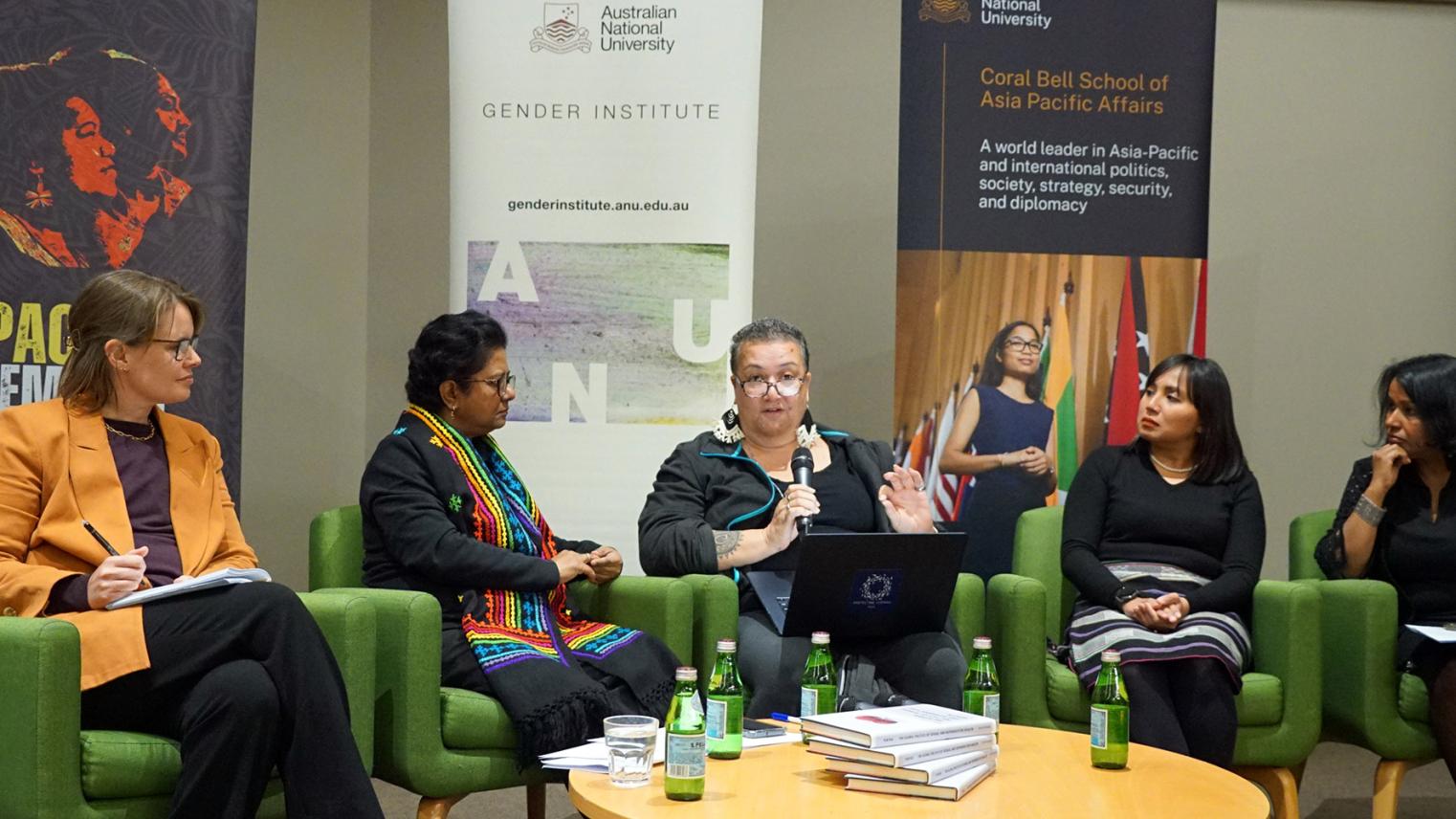
‘The Global Politics of Sexual and Reproductive Health’ examines everyday inequalities in sexual and reproductive health and rights, and the failure to address them in crisis settings, from a feminist international relations (IR) perspective. It investigates the contentious issue of bodily autonomy – right to health, sexuality, and pleasure – why it activates fiercely divisive political dynamics, and what this contentious nature means for women’s health and wellbeing. The book explores how routine neglect or deterioration of sexual and reproductive health in crisis settings can undermine inclusive and durable peace globally. It employs a scalar analysis, which situates the bodily autonomy of Filipino women, particularly those who are in internal displacement settings, within global processes and international frameworks on peace and security. It also demonstrates how the lives of Filipino women, as in many other contexts, can challenge or disrupt those prevailing ideas and norms.
Writing about everyday inequalities in sexual and reproductive health and rights
Maria conducted three field trips in Manila, Mindanao, and the Eastern Visayas region, between January 2015 and May 2016 during her PhD study. The on-the-ground experience helped her gain significant insights into two case studies for the book – (post)conflict situation in relation to the Bangsamoro peace process; and post-disaster in the aftermath of Super Typhoon Haiyan in 2013.
Conducting field research in post-conflict and post-disaster sites was a difficult task. For example, when Maria arrived in Tacloban, Eastern Visayas for the first time in February 2015, the whole place was still devasted by the typhoon and many people described how it was reminiscent of a ‘war zone’.
While it was a difficult experience for Maria to interview survivors of a disaster, she was very aware of the importance of conducting the research,
Obviously, seeing the devastation and asking people [who were still traumatised] to assist in your research created a lot of ambivalences, but at the same time, I knew it was important to do because there were a lot of news reports about sexual and gender-based violence such as human and sex trafficking in the displacement camps.
When asked what message Maria would like to convey through the book, she emphasises that restrictions on women’s bodies are never a private matter, rather they result from public decisions, shaped by international norms and processes of peace and security. Furthermore, Maria wants to highlight the need to separate gender equality issues or agendas. While there is a broad embrace of women’s political participation, women’s bodily autonomy remains a contentious issue and still faces fierce opposition, and we need to understand why.
Going back to sites and responsible research
Having presented her book in the Philippines in August, Maria feels her work has come full circle. After the book launch at ANU, she travelled to the University of the Philippines Cebu and the University of the Philippines Tacloban to present her research findings. She also joined a local radio station, Bombo Radyo Tacloban, to raise awareness of sexual and reproductive health through her book. The trip was generously supported by the ANU Philippines Institute, one of several regional institutes through which the ANU College of Asia & the Pacific (CAP) cultivates research partnerships within the region.
Maria is thrilled by the trips, which taught her why returning to research sites is so important,
Going back and presenting the findings will challenge you. In both Cebu and Tacloban, there were difficult questions and critical feedback which are very helpful and insightful too.
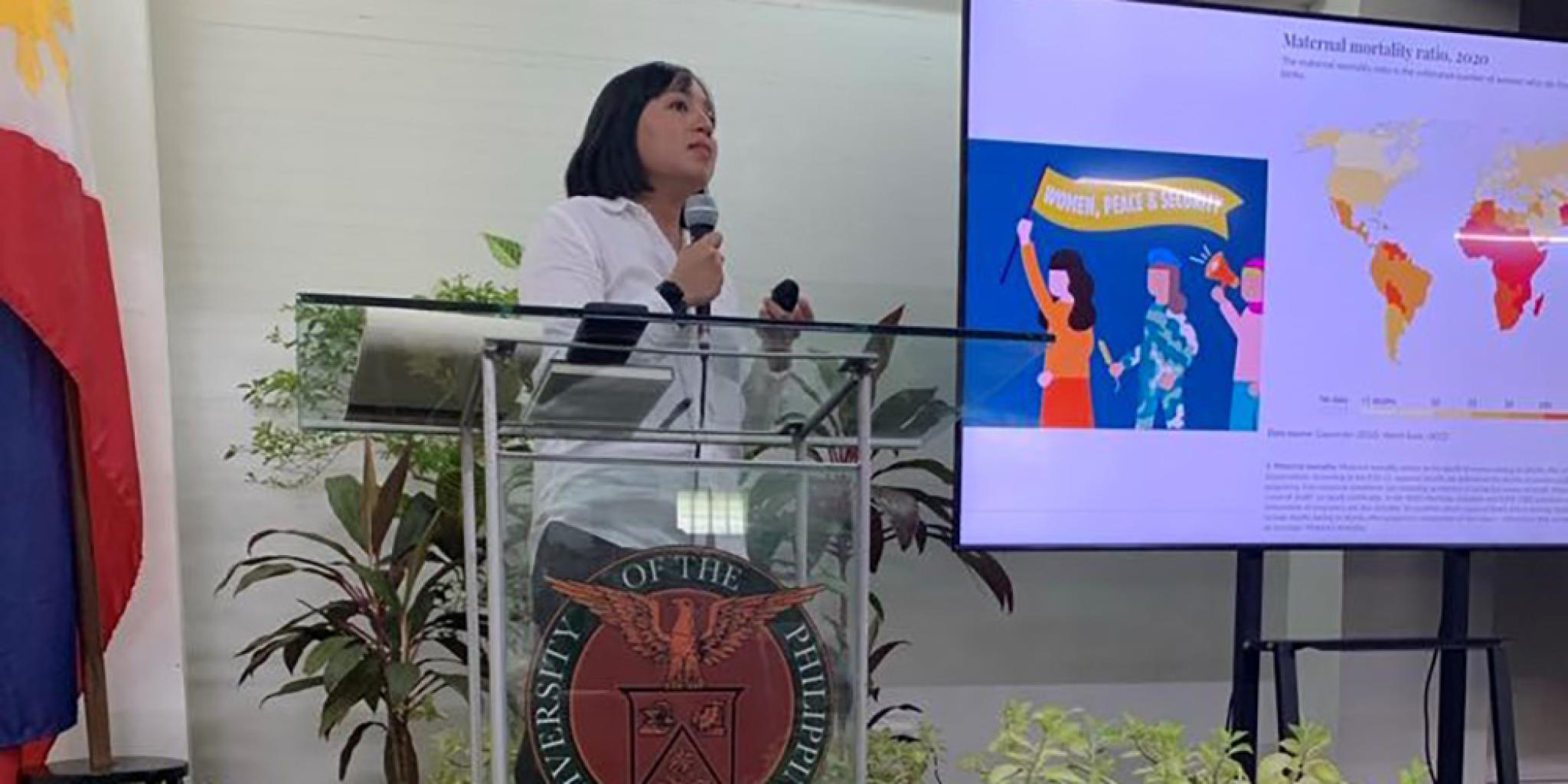
Moreover, Maria believes that coming back to sites is a crucial part of doing responsible research. For her, communicating the research to participants or local communities plays a significant role in influencing societal outcomes,
“The research might be an individual task, but connecting research to political change, which is part of doing ethical research, is a collective effort. And that's why it is important to come back to those sites and to return or share findings with the people who helped you conduct the research. Because then they can do the collective work of sharing the findings, drawing awareness to the issues, creating change, or influencing policies.”
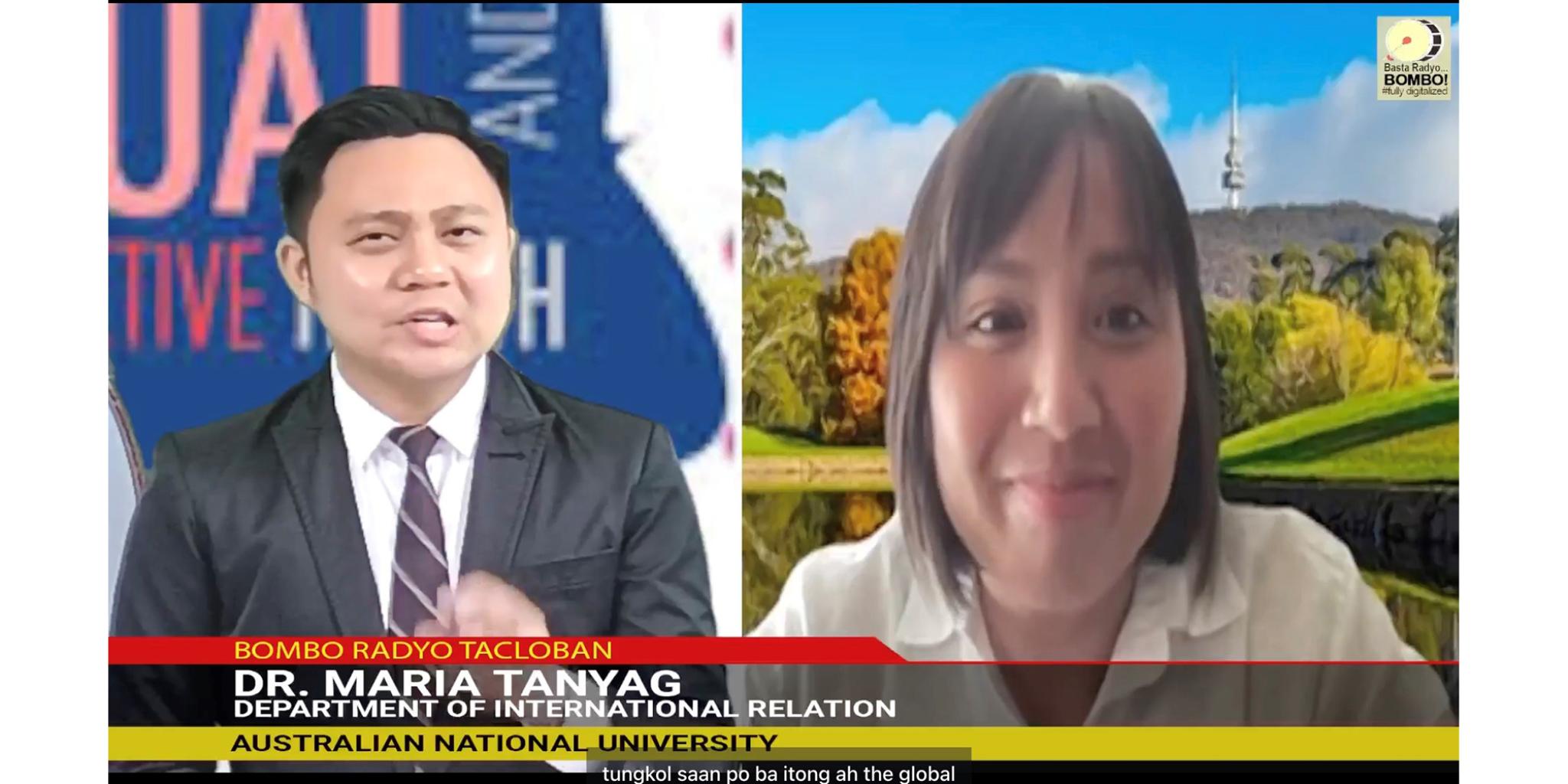
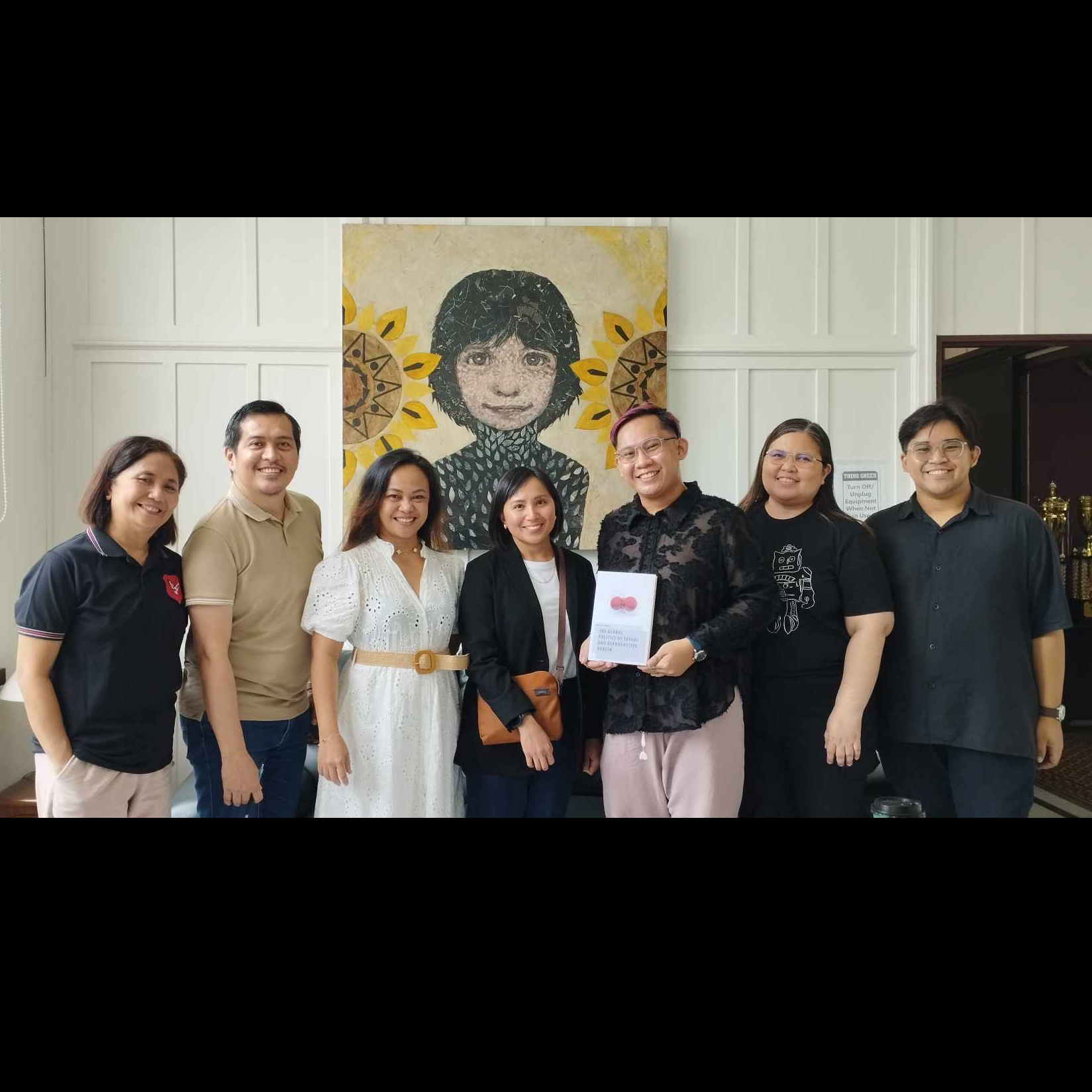
Maria is welcomed by UP Cebu Academics including Associate Professor Weena Gera, the Former Vice Chancellor of UP Cebu (second to the left)

Maria discusses key findings in UP Cebu
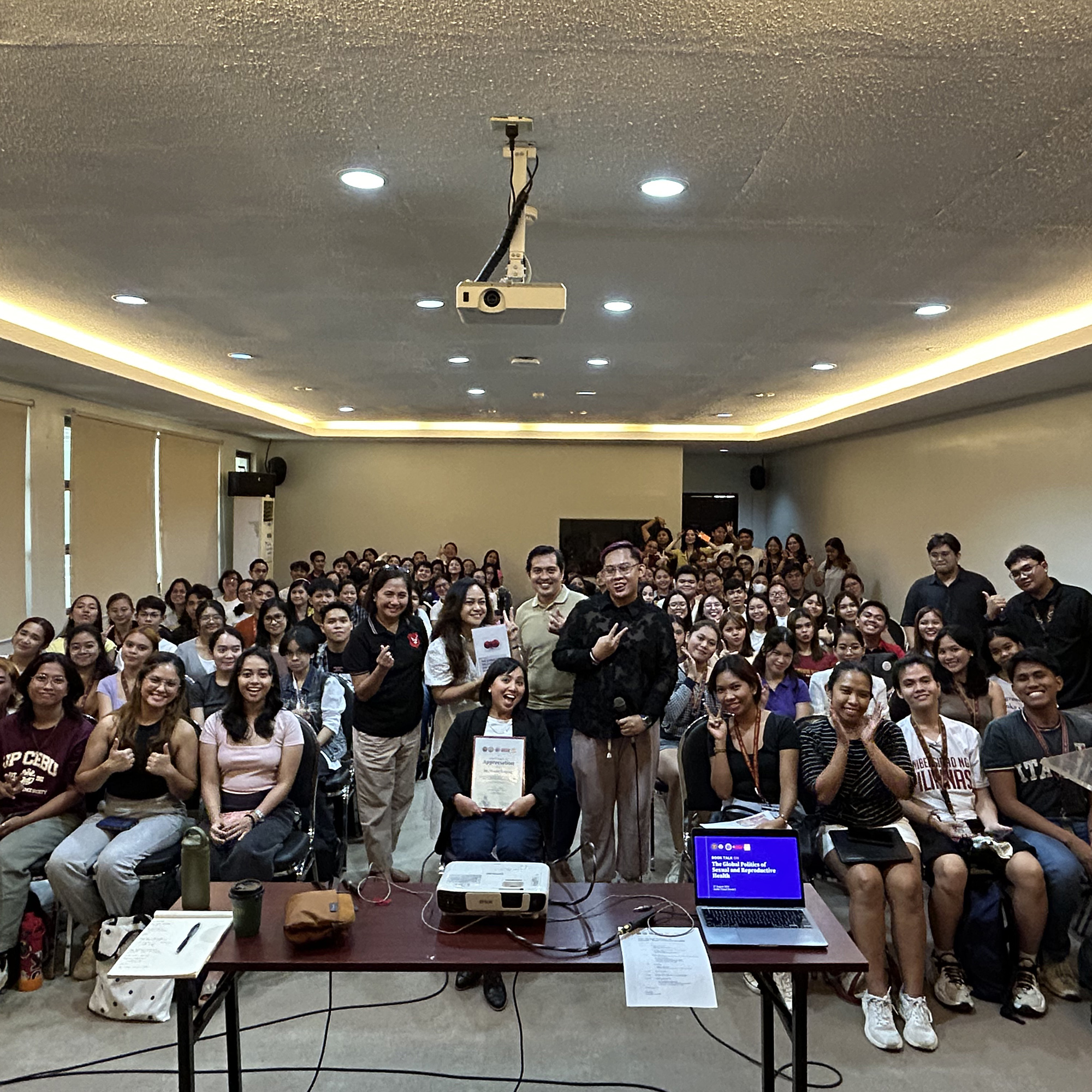
A very strong turn out by UP Cebu students
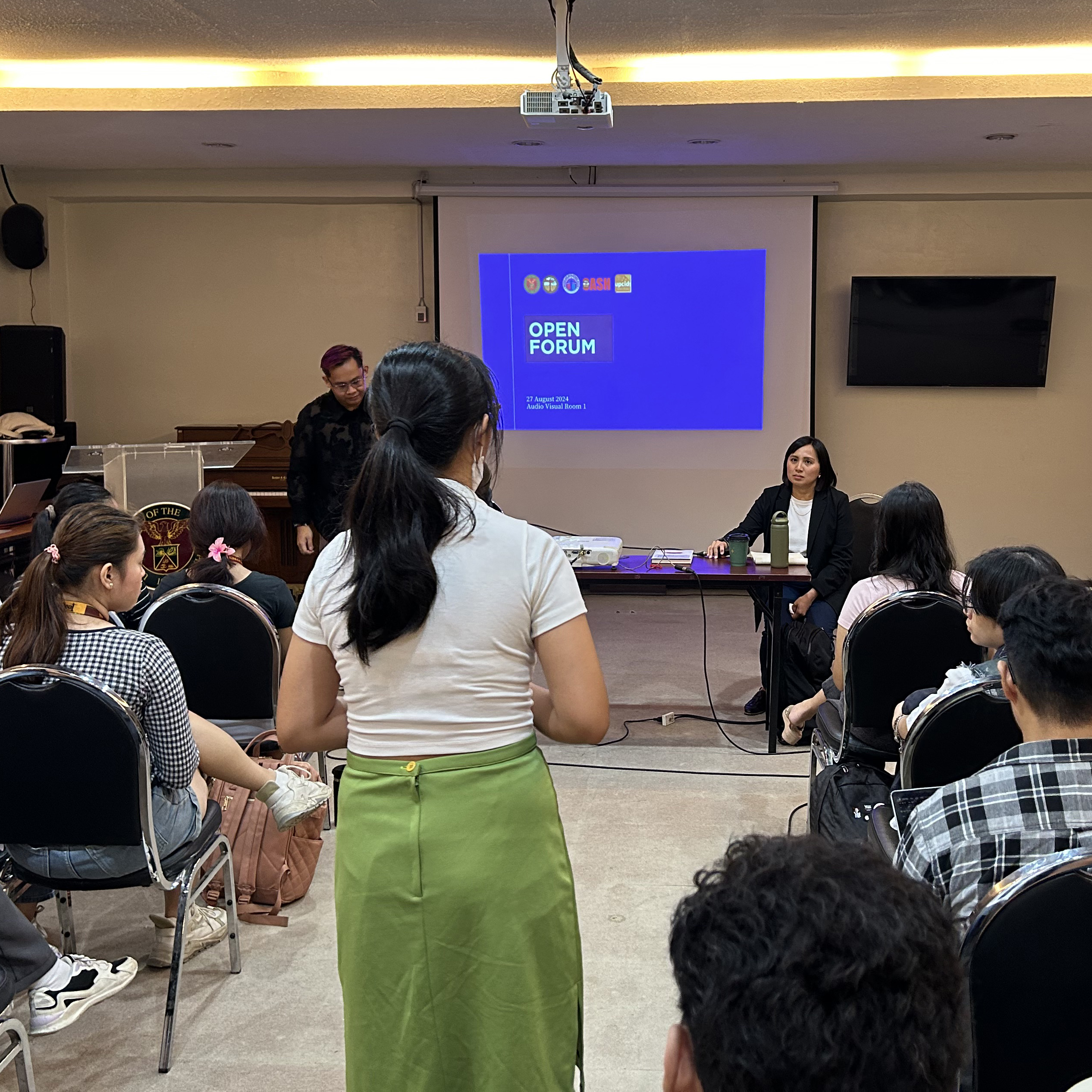
A student asks Maria her question highlighting significance for young people
